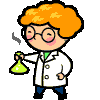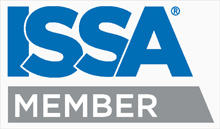Is Bleach Safe?
On the April 3, 2015 edition of the Today Show, a piece aired about an observational study conducted that raised questions about bleach use in the home and how it might be linked to certain respiratory illnesses in children.
The study titled ‘Domestic use of bleach and infections in children: a multicentre cross-sectional study’ was published in the Journal of Occupational and Environmental Medicine. The study suggested that exposure to bleach vapors in the home may increase the risk of respiratory and other infections in children.
The pervasive use of bleach for cleaning should be a concern to all. While there is no doubt it is effective at killing germs, we need to educate that over reliance on bleach for sanitation may not be the best or safest method of sanitation. This also represents a great opportunity to have frank discussions about the over-use of disinfectants in general.
The study authors pointed out that “The high frequency of use of disinfecting cleaning products, caused by the erroneous belief, reinforced by advertising, that our homes should be free of microbes, makes the modest effects reported in our study of public health concern”.
Where is bleach used? Household bleach in the familiar gallon bottle is not the only place bleach is found in the home. Bleach is used in cleaning wipes, bathroom cleaners, toilet bowl cleaners, kitchen cleaners, and drain cleaners, to name a few. There is no doubt that adults and children are regularly breathing bleach vapors at home, in school, at the gym, etc.
The same Today show edition had a companion piece on safer alternatives to bleach for cleaning the home. The interviewer was shown by a lifestyle expert how to make safer cleaning products in the home by mixing common ingredients like Borax, Baking Soda, Vinegar and fresh lemons to make cleaning solutions to clean and kill germs.
Frankly, we don’t believe that encouraging the consumer to mix their own concoctions is a particularly good idea. What happens when they start mixing the wrong items together?
Here is a link to the abstract for the study


